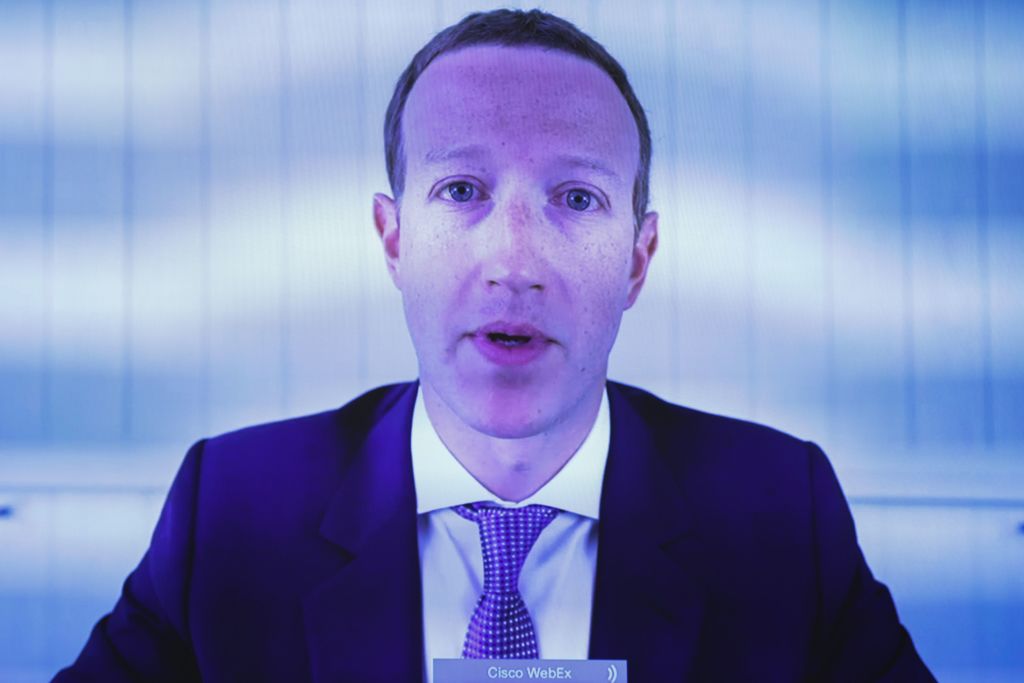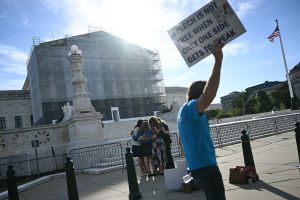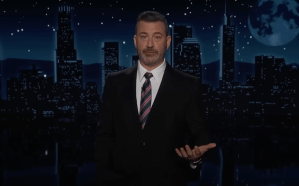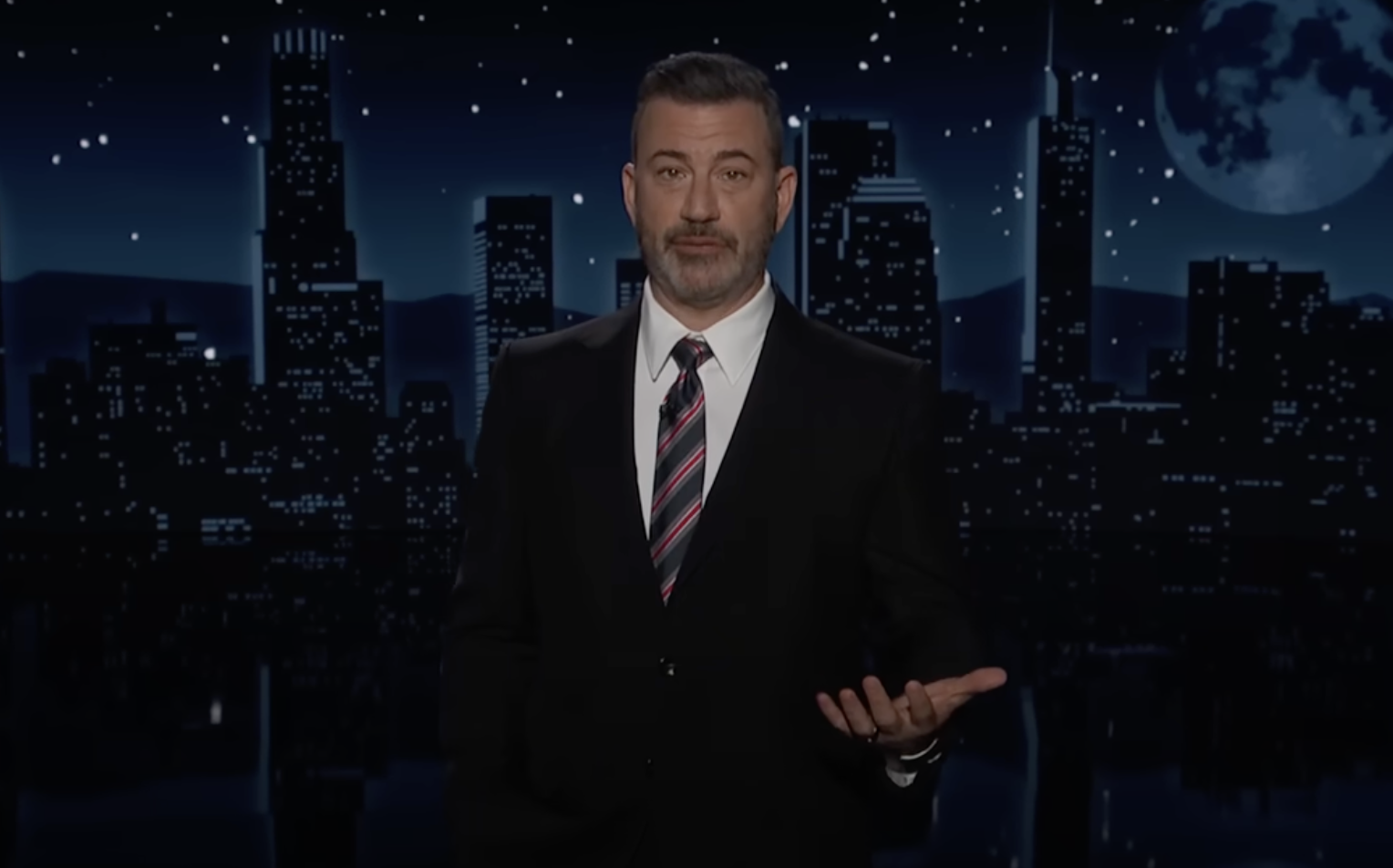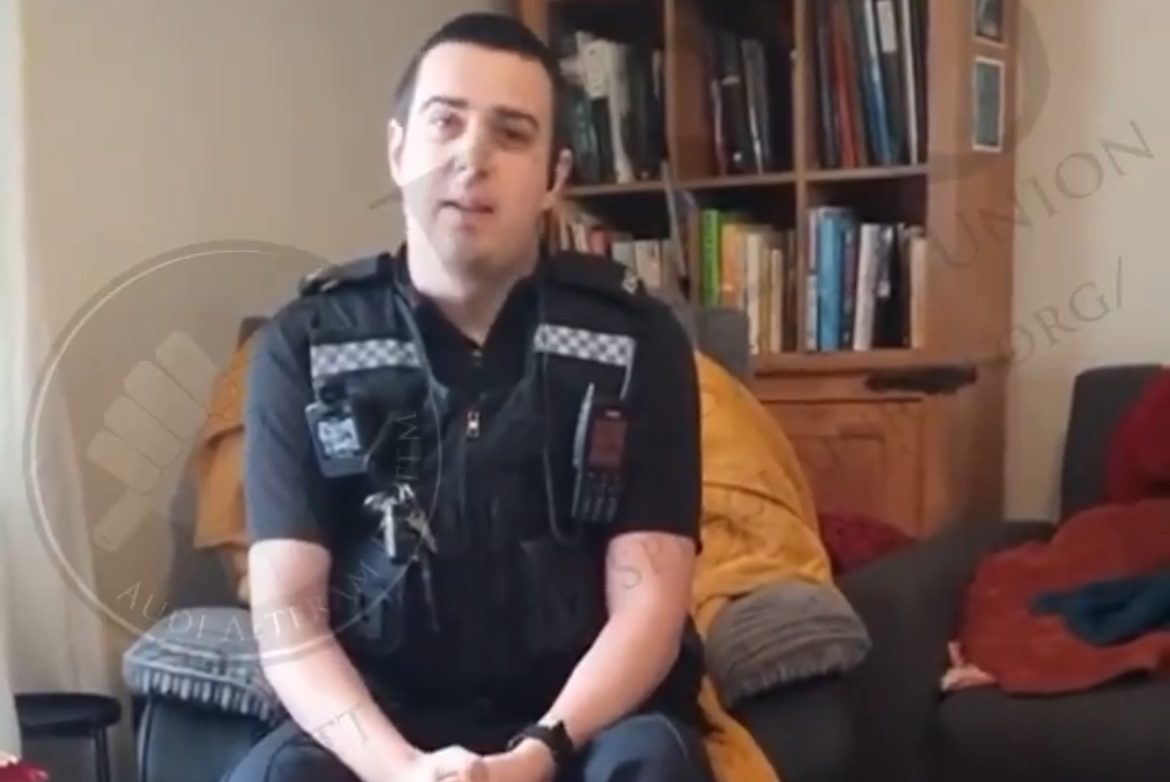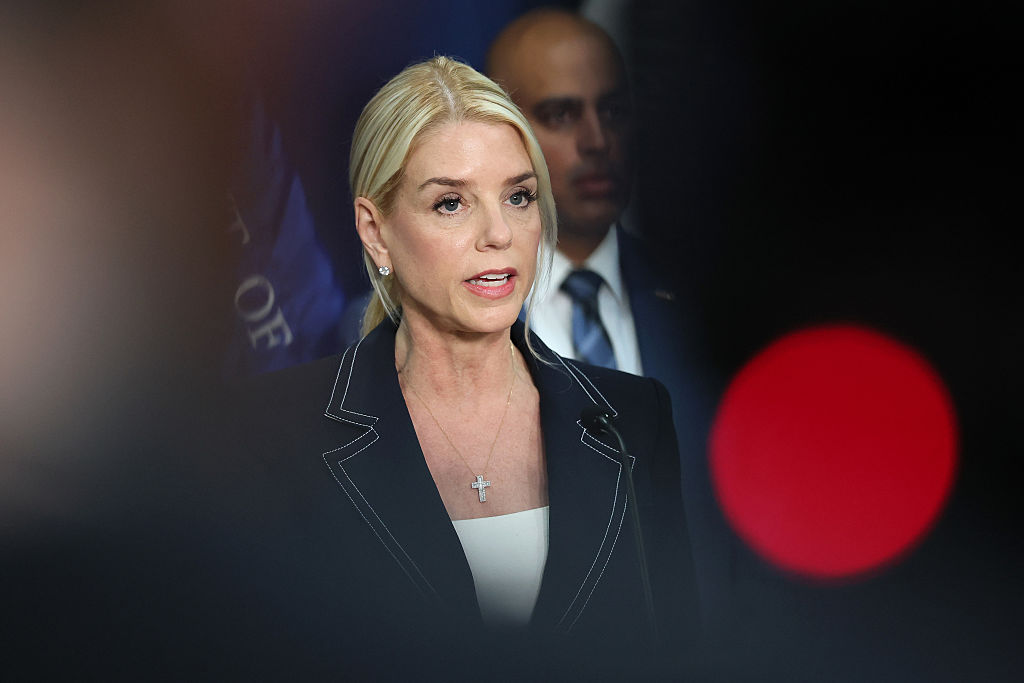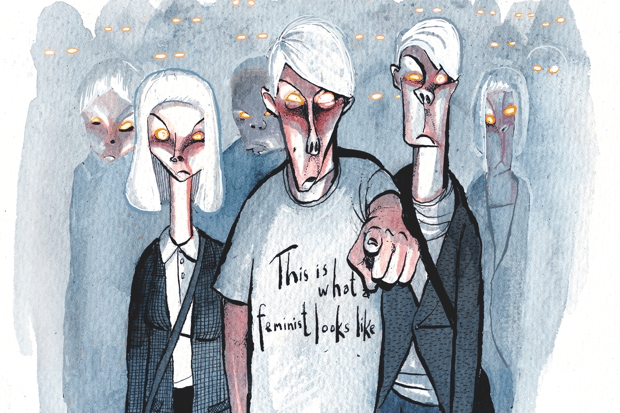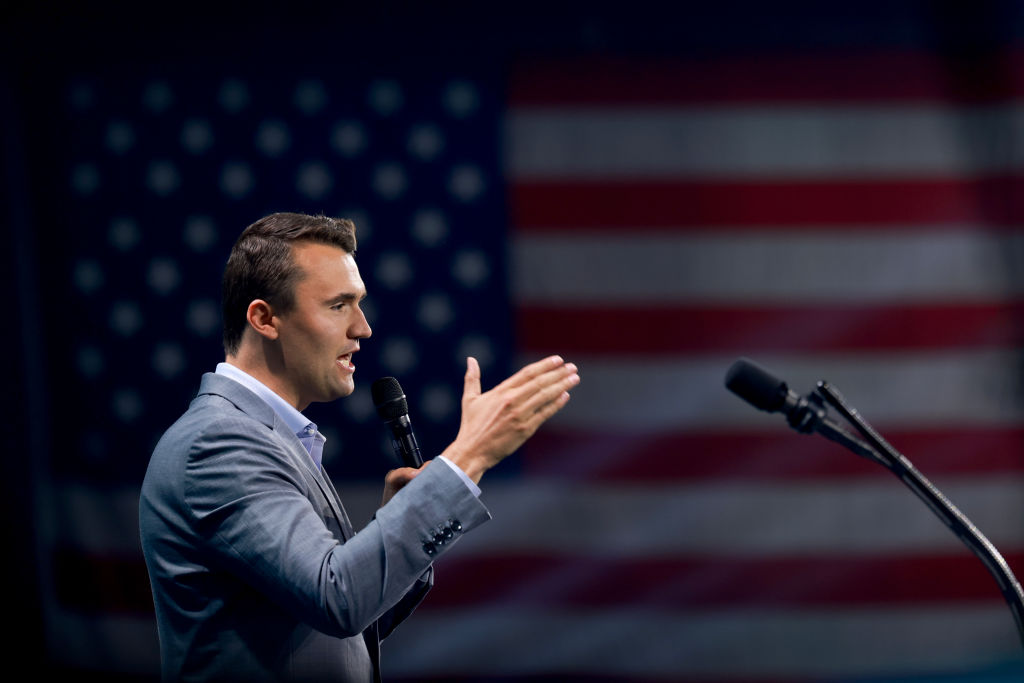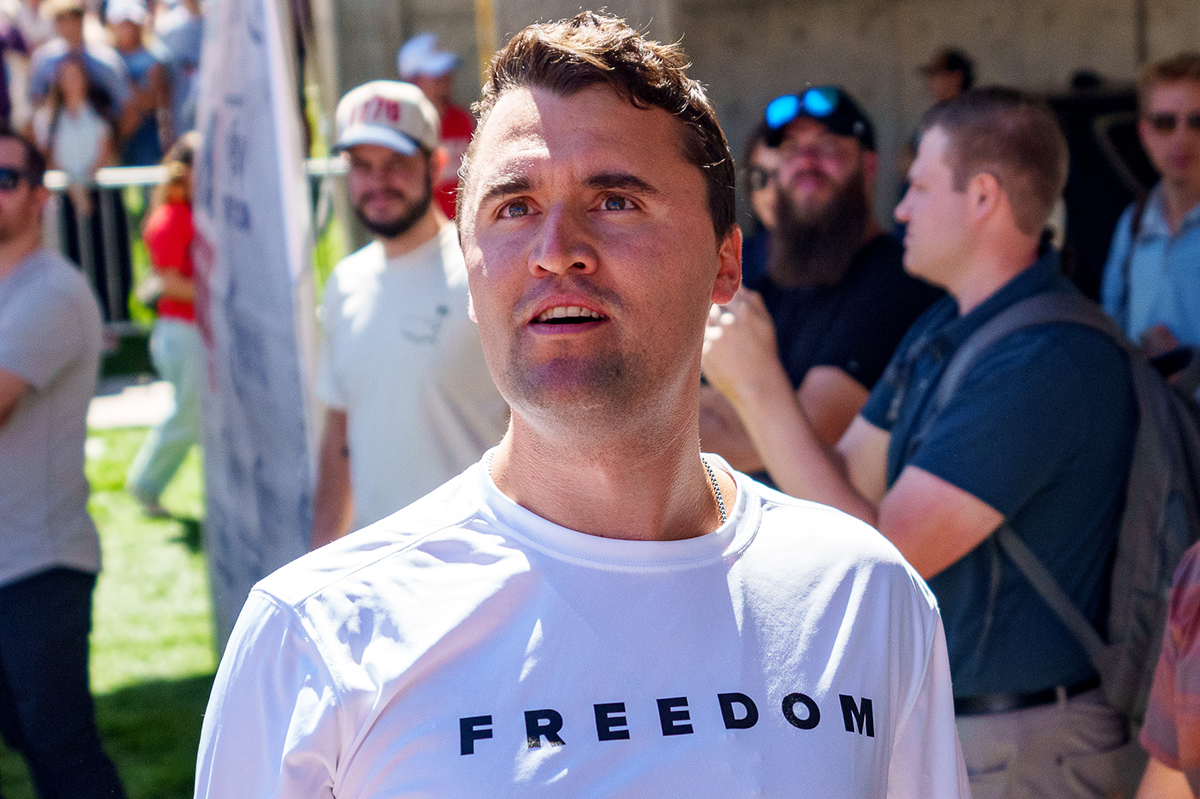Stung by recent criticism, and fearing major regulation, Mark Zuckerberg, founder and CEO of Facebook, has announced the establishment of a kind of ‘Supreme Court’ for his company.
Selected and paid by Facebook, the members of this ‘Oversight Board’ will in theory behave as independent adjudicators capable of making rulings over content moderation and other important aspects of the business. No doubt Mr Zuckerberg is looking at the example being set by the US Supreme Court and thinking, ‘What could go wrong?’
It’s hard to believe now but in 2017, it seemed plausible that Mark Zuckerberg might become president. He made an improbable tour of the heartlands: talking shop with truckers at a gas station in Iowa, drinking raw milk on a farm in Wisconsin and touring a train yard in Nebraska. Despite his frequent denials, the sense that he could be a moderate, liberal, technocratic successor to Trump encouraged rumors of his candidacy.
There were naysayers then: ‘A Mark Zuckerberg Presidency Isn’t Ridiculous — It’s Terrifying’ groaned one headline in the Nation. A
On the other side of the aisle, many conservatives were concerned by what they saw as biased censorship. A nervous, water-sipping Zuckerberg was hauled before Congress, looking like a kitten in a cage with angry pit bulls. Facebook was named the least trusted tech company in America.
But the excited predictions of a ‘techlash’, mine included, were premature. We might distrust Mark Zuckerberg, and Jeff Bezos, and Jack Dorsey, but we are still hooked on their products. We post tweets, and status updates, and photos, and links, and then talk about what callous fascist-enablers
Still, nobody forces tech moguls to do their work. Tom Anderson sold MySpace and retired, embracing a simpler and more innocent life. Zuckerberg — like Bezos and Dorsey — is a man whose ambition belies his diffident appearance. I think he really believes that Facebook is a source of more connection than conflict – and that openness is more valuable than censorship. As a recent article in the Verge details, he condemned Donald Trump’s ‘when the looting starts, the shooting starts’ post in the summer but refused to take it down despite appeals from his own staff. ‘The community we serve tends to be, on average, ideologically a little bit more conservative than our employee base,’ Zuckerberg is quoted as saying. ‘If we want to actually do a good job of serving people, [we have to take] into account that there are different views on different things, and that if someone disagrees with a view, that doesn’t necessarily mean that they’re hateful or have bad intent.’
People on the right may not appreciate how relatively liberal tech moguls have been. I say relatively — conservatives are still censored without justice and without balance and that demands opposition.
But if the kind of progressives who are in politics, the media and the academia ran these platforms — rather than the kind of progressives who maintain some sort of romantic attachment to the idealistic openness of earlier incarnations of online networking — censorship would be a lot worse.
It will get worse. The establishment of the Facebook Oversight Body is Zuckerberg’s bid for redemption. It is an attempt to prove that he is not above accountability and is responsive to criticism. Among its members are Helle Thorning-Schmidt, the former Danish prime minister, Alan Rusbridger, the former editor of the Guardian and Tawakkol Karma
Facebook has attempted to strike a balance of talents and perspectives. People like Nighat Dad and Ronaldo Lemos are real experts on free expression and online privacy. Michael McConnell of the Stanford Law School and John Samples of the Cato Institute will bring conservative and libertarian perspectives. Of course, including one conservative member out of 20 is hard to call ‘balanced’ when compared to the political make-up of the Facebook user base – especially when the other members include a liberal politician, a left-wing journalist, a former aide to Kamala Harris, a former member of Hillary Clinton’s State Department and a law professor who has been described by the New York Times as a ‘a full-throated, unapologetic liberal
Will this ‘Oversight Board’ lead to good faith, nonpartisan discussion and consensus, as optimistic liberals forever try to achieve, or will it lead to conflict, politicization and elite capture? Thorning-Schmidt, in conversation with the BBC, has said:
‘It would be much better if the global community in the UN could come up with a content moderation system that could look into all social media platforms, but that is not going to happen…’
Why, yes, the UN! What could be better than putting our right to express ourselves, and to be informed, into the hands of such a famously sagacious, responsive and effective institution. That makes one feel really good about the prospects for the ‘Oversight Board’.
[special_offer]
The creation of the board has not been enough for Facebook’s left-wing critics. The ‘Real Facebook Oversight Board’, organized by The Citizens, a project of the hyperactively suspicious Carole Cadwalladr
Of course, Facebook should be held to account. There is no doubt that content should be moderated when it is full of violence, bullying, or exploitation. There is the matter of data’s collection, of its manipulability, its commod



